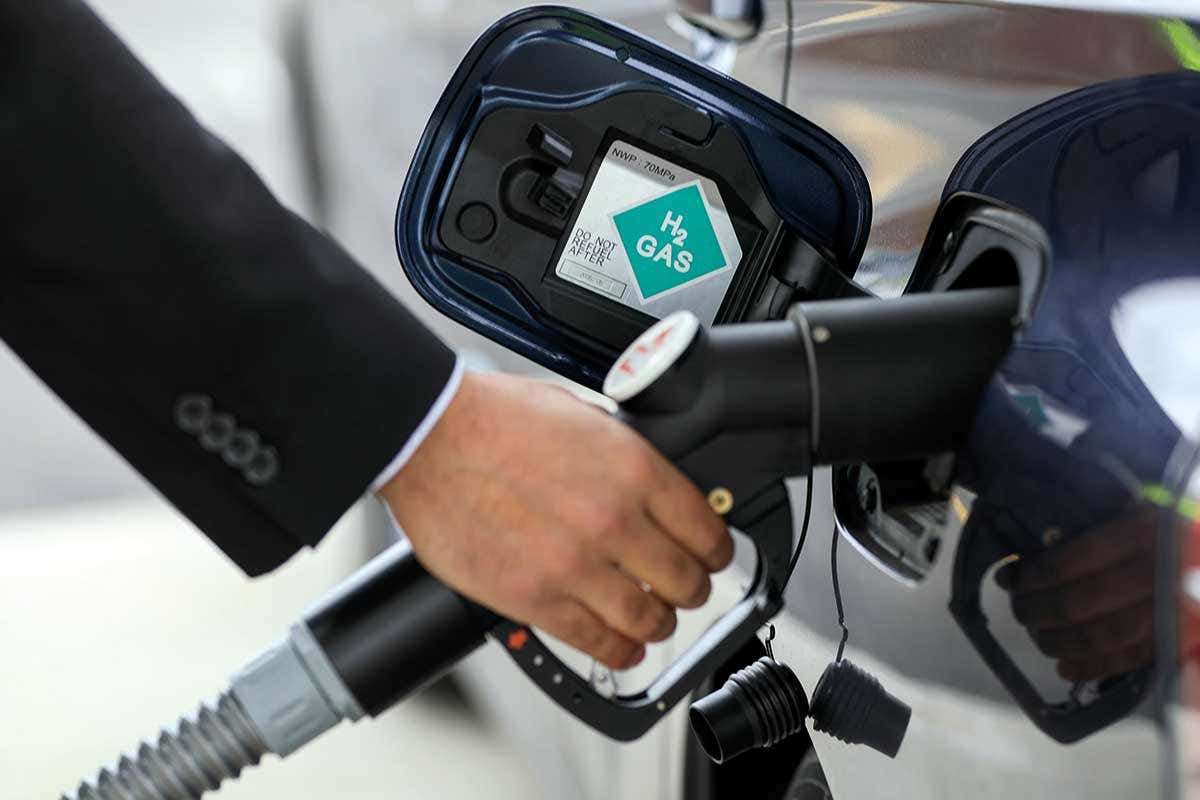FOR a fuel that supported humans on their way to the moon, hydrogen has singularly failed to get off the ground. The fuel cells that provided the juice for the Apollo lunar modules 50 years ago followed a principle of efficient electricity generation we have known for two centuries. You react hydrogen and oxygen, making electricity and just one, clean waste product: water. Useful stuff when you are in space.
Useful stuff when you are on the ground, too. The world is lacking in transportable fuels that aren’t oil. Whether in fuel cells, directly in internal combustion engines, or in a host of other contexts as a substitute for fossil fuels, hydrogen promises a greener alternative. With zero emissions at the point of use, it is also a potential solution for the foul air of our cities.
Interest is burgeoning. Climate laggard Australia is looking to burnish its green credentials by developing a national hydrogen strategy (see “Australia could start exporting sunshine in the form of hydrogen”). In the UK, the H21 North of England initiative, the “world’s largest clean energy project”, envisages converting the domestic gas supply of 3.7 million households to hydrogen, starting in 2028. One estimate is that hydrogen could meet 24 per cent of total energy demand across Europe by 2050.
Caution is needed. Hydrogen is the most abundant molecule in the universe, but it isn’t present on Earth in its free form. We must first produce it.
That can be done cleanly by splitting water into hydrogen and oxygen using renewable electricity from solar and wind power. But the cheaper and more prevalent method is to extract it from natural gas or coal, which emits carbon dioxide and locks us into further exploitation of fossil fuels. Projects touting hydrogen’s green credentials often rely on sequestering waste CO 2 from its production, a technology as yet untested on the scale required.
Limiting global warming to “safe” levels is the moonshot of our generation, a huge technological challenge. Hydrogen can be part of the solution – if we do it right.

Spsurgeon on June 11st, 2019 at 01:05 UTC »
I believe a small European country is using excess tidal power to produce Hydrogen which is them easily transportable.
kingkyle630 on June 11st, 2019 at 00:39 UTC »
This post should have started out as “Methods used to produce Hydrogen have a dirty secret”, it was a little misleading at first...but hey, that’s also why you shouldn’t just read the headlines I suppose.
NiceSasquatch on June 11st, 2019 at 00:25 UTC »
When people say hydrogen is an energy source, I explain to them it is basically just a battery. Hydrogen doesn't exist (as an free atom in any appreciable amount) on earth. You put energy into it to store the energy, then you can transport it and use it later, but it is not a source of energy.